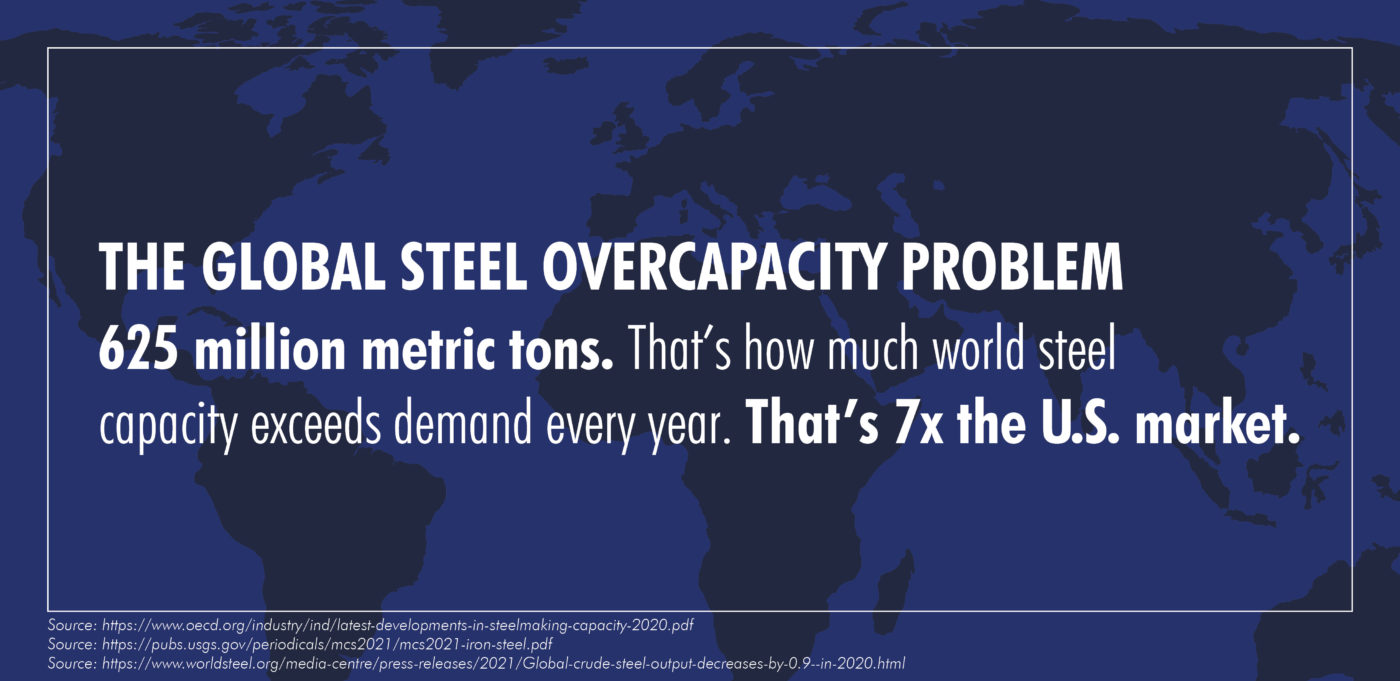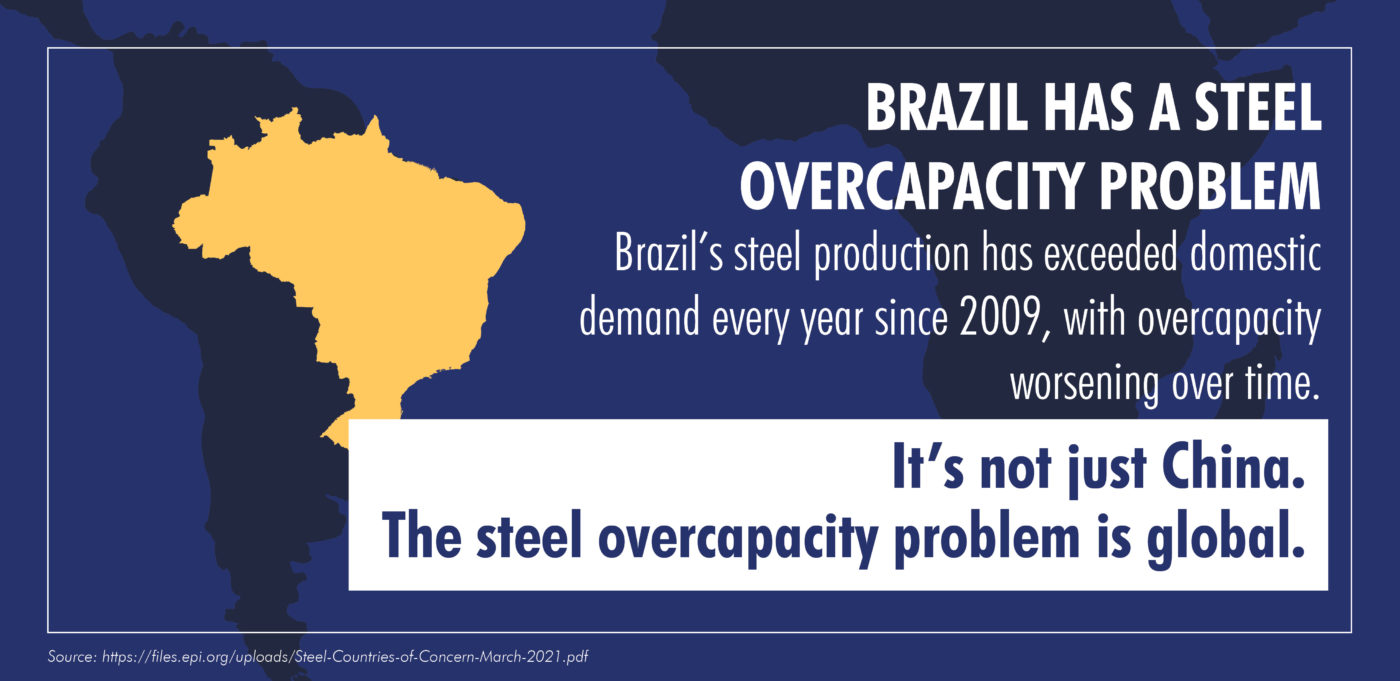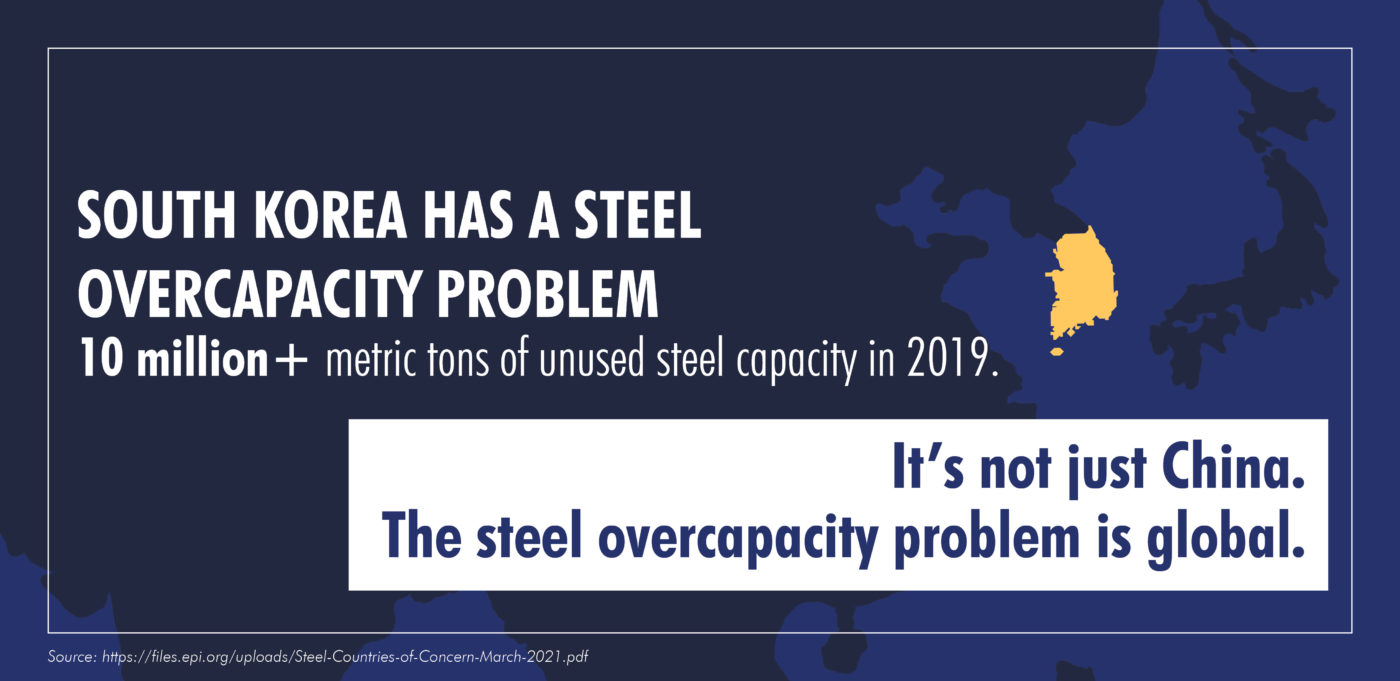Chronic global steel overcapacity has undermined the U.S. steel industry’s ability to support America’s national security needs for decades.
Countries around the world have used government subsidies and trade-distorting policies to prop up their domestic steel industries, resulting in massive overcapacity of steel in the global market. For example, China has used extensive government support to expand steel capacity for the past 20 years. As a result, China is now responsible for approximately 56.5% of global crude steel production, producing over one billion tons of steel in 2020.
But it’s not just China. The United Kingdom, Japan, India, Brazil, Korea, Turkey and those in the European Union have all used extensive government support and unfair trading practices to boost their own domestic steel industries.
And for too long, American workers have paid the price.
Global overcapacity and the surge of steel imports into the U.S. hurts domestic steelmakers and workers. Left unchecked, global steelmakers were able to flood the U.S. market with cheap, subsidized, and dirty (CO2- intensive) steel imports. This undercuts our national security, prices, domestic production, employment and capital investments here in the U.S.
The Organization for Economic Co-operation and Development (OECD) found that global excess capacity is 5.8 times the productive capacity of the entire U.S. steel industry. Source: EPI study.
Under these circumstances, it is increasingly important for the U.S. government to keep Section 232 measures strong and guard against increased steel imports. American-made steel is vital to our national security, our economy, and the well-being of thousands of workers across the country.


